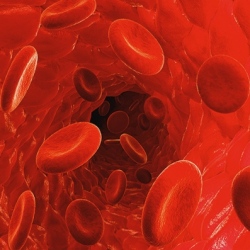
The human body doesn’t like outsiders. When a foreign pathogen or substance, say an unwanted virus, finds its way into our blood streams we produce antibodies that the neutralize the threat. These proteins are made by a class of blood cells called plasma cells and bind to molecules on the invaders called antigens, triggering another set of white blood cells to ingest the interloper.
For years now doctors have used antibodies and other protein-based therapies (aka biologics) to treat a range of illnesses, cancers, infections and autoimmune diseases among them. There’s only one problem: antibodies are bulky and hence usually have to be administered intravenously as they’re often to big to be absorbed in the gastrointestinal tract. With this in mind, chemist David Spiegel and his colleagues at Yale University are out to simplify dosing for patients on antibody therapy by developing treatments with the benefits of antibodies, minus the needle.
In work recently published in the Journal of the American Chemical Society Spiegel and his team have successfully developed the first synthetic molecules that behave like antibodies. Like the real thing, these so-called "synthetic antibody mimics", or "SyAMs", bind to both diseased cells and disease-fighting immune cells. Specifically the compounds were found to zero in on and bind to a specific antigen on prostate cancer cells. The SyAMs also bind to and activate certain immune cells that then devour the malignancy.
